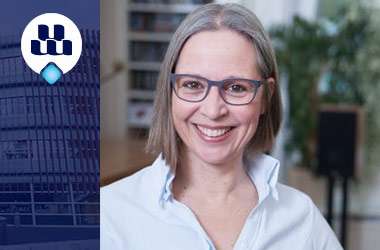New Research Agenda at Wittenborg

Wittenborg's New Head of Research will Introduce Research Agenda after Summer
Creating a long-term research agenda is one of the major goals at WUAS. To realise this goal, Dr Nicolet Theunissen has been appointed as the new Head of Research.
Theunissen, a Dutch scientist and entrepreneur, is the founder of Future Life Research, a social enterprise which focuses on innovation for the future. Previously, she has worked for the Netherlands Organisation for Applied Scientific Research (TNO) and other universities. She holds a Ph.D. in Medicine (Health psychology) and a Master degree in Developmental Psychology.
She is now working on the first draft of a strategic research agenda for Wittenborg. “It is not something that should be drawn up by one person. I still have to find out what the possibilities of the research staff members at Wittenborg and what are their interests. Also, what subjects are important to the outside world, the relevance of Wittenborg research to industry, why they should look at Wittenborg and how we can collaborate with other institutions such as the University of Brighton in the UK. All of that constitutes a research agenda.
“When you have a clear research agenda, you have a better profile internally and externally, but hopefully also for students, so that they learn about new subjects which might strike an interest with them. In that way you have more people who bring their enthusiasm and knowledge to the subject so that it may grow.”
When will the research agenda be ready?
Theunissen hopes that after the summer concrete steps will be set in place to take the agenda forward. “It is a journey. The next milestone will be to choose focus points that must be ready within a year."
Does Wittenborg have ambitions to become a research university?
"Obtaining the status of a research university is not a goal in itself, but it is not excluded. We have done research here in the past, but it was less focused and more coincidental. "
Do you have any concerns about the current state of research in the Netherlands?
"In the Netherlands there is a distinction between research universities and universities of applied sciences (hogenscholen). Research primarily happens at the former, which means they get the majority of funding. However, there is a lot of competition in how the funding is divided and one of the unfortunate outcomes is that only a small part of research areas gets funded. People are competing on ideas and an idea is not a project. Maybe someone is very good at making a proposal for funding, but it is not automatically the best research. This bias needs to change. Research should be a community of people who, together, try to find the truth about the world."
How will Wittenborg approach the problem of funding?
"When you collaborate with industry and other parties, perhaps some real needs in application will emerge. Wittenborg collaborates with some great organisations and this can be further extended so we can transfer the knowledge of fundamental research to the needs of businesses and other organisations."
In other words, tailoring to their needs without compromising on academic integrity?
"Exactly."
WUP 02/05/2018
by Anesca Smith
©WUAS Press